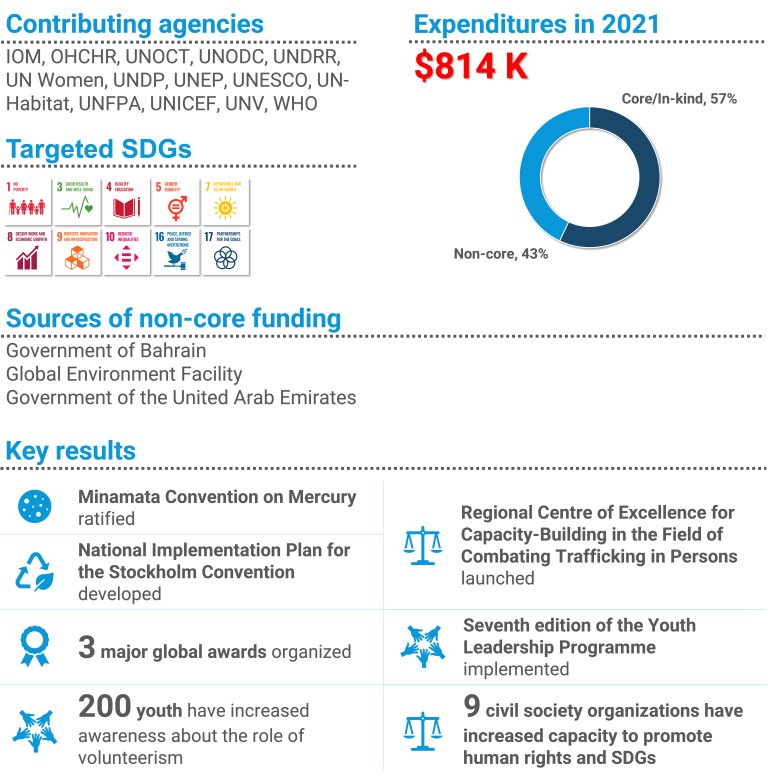With United Nations support, the Government of Bahrain strengthened its position as a State party to international instruments. Several efforts contributed to this result, including the ratification of the Minamata Convention on Mercury, the development of a National Implementation Plan for the Stockholm Convention via a multi-stakeholder consultative process and the consolidation of capacity for the implementation of the Montreal Protocol, among others.
The United Nations in Bahrain also facilitated the country’s participation in regional and global events for knowledge and experience sharing in the field of sustainable development, such as the Global Compact for Migration Regional Review Forum for the Arab Region and the Briefing for Member States on the International Migration Review Forum, the Intergovernmental Forum on Combating Trafficking in Persons in the Middle East, the sixty-eighth session of the WHO Regional Committee for the Eastern Mediterranean, as well as several others mentioned in this report and beyond.
The image of Bahrain as a model of good practice was further enhanced in 2021 with significant technical support and input from the United Nations. For example, the year saw the launch of the Regional Centre of Excellence for Capacity Building in the Field of Combating Trafficking in Persons – the first of its kind in the region. The centre will not only strengthen the capacity to combat trafficking in persons and improve services for victims of trafficking among professionals in Bahrain but will also serve the broader region, ensuring that relevant knowledge and expertise is transferred to other countries.
In addition, the COVID-19 success stories reported by Bahrain, as well as progress on health-related SDGs, were documented to share best practices in the field among health professionals and Bahraini legislation on the use of non-custodial measures and penalties was presented at the regional level as an example to follow. Furthermore, Bahrain was included as a case study in the report entitled “Volunteerism and the State in the Arab World: Toward Building an Inclusive Society”, being acknowledged as one of the countries in the Arab region that offers innovative models of the volunteer/State relationship that can be emulated to create more sustainable and inclusive societies.


